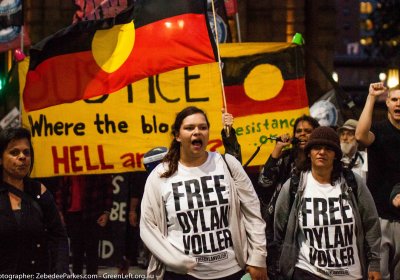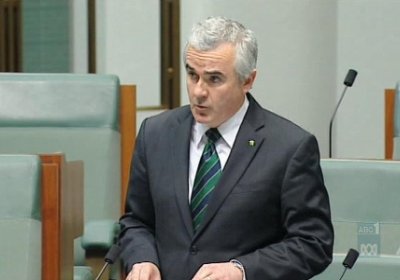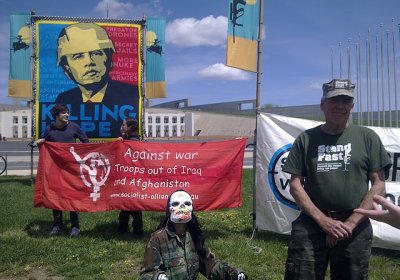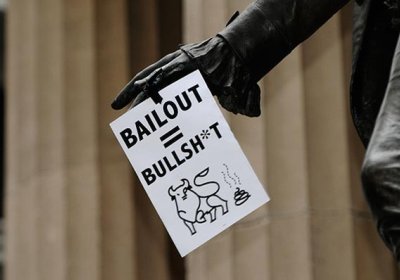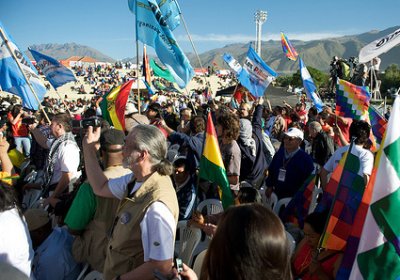The National Day of Action against Youth Incarceration on October 11 was marked by a protest rally and march, which also blocked a CBD intersection.
857
The second MP to speak in the House of Representatives debate on Australian military intervention in Afghanistan – a debate held nine years after the intervention began – was the newly elected independent Member for Denison (Tasmania) Andrew Wilkie.
On October 19, at exactly 3.30pm, the Lib-Lab politicians suddenly went from smirk to sombre as the Afghanistan “debate” finally started – nine years too late.
On October 19, Sydney Stop The War Coalition activist Marlene Obeid was dragged out of the parliamentary public gallery as Australia's Prime Minister Julia Gillard announced that Australian troops would be "engaged in Afghanistan at least for the rest of this decade".
Western Australian Liberal Premier Colin Barnett has said many of the 200 remote Aboriginal communities in WA will be shut down.
ABC Online reported on October 14 that Barnett said: "There's no doubt that under policies really initiated by the Federal Government, small, isolated Aboriginal communities were promoted.
"The reality is that there's no employment prospects in those areas, or very limited."
Barnett’s comments were in relation to the small community of Oombulgurri, where there are 50 residents and 14 public servants.
On October 3, US authorities warned US citizens travelling in Western Europe that there was an increased threat from Islamist terrorism. The same day, British authorities cautioned their citizens travelling in France or Germany. France, for its part, issued a warning for French nationals visiting Britain.
The nature of the supposed terrorist threat was unspecified. The media breathlessly speculated about planned “Mumbai-style” attacks.
No legally-binding agreement to cut greenhouse gas emissions will be made at this year’s big United Nations climate conference in Cancun, Mexico from November 29 to December 10. And that’s just the way the rich nations want it.
Few world leaders are even expected to turn up to the Cancun talks. For months, key players have tried to dampen down public hopes that the summit will mark a shift away from business as usual.
The British Guardian columnist George Monbiot wrote on September 20 that it was time for climate action campaigners to accept the UN process was dead.
Union and community opposition has firmed against Labor Premier Anna Bligh’s bid to privatise Queensland Rail National (QR), as the government prepares to launch shares in the rail freight corporation on November 22.
QR National, a 140-year-old public asset, will be sold off at an estimated $2.50-$3 a share, raising up to $7.3 billion, ABC’s Lateline said on October 11.
Despite carefully-crafted appearances to the contrary, projects like the Extractive Industries Transparency Initiative (EITI) are no solution to the problems that confront the colonised “developing” world.
Endemic corruption, environmentally unsustainable development and spiralling income inequality are inseparable from the process of capitalist global expansion, which EITI and other corporate-funded front organisations only serve to legitimise.
The Australian dollar has become a favourite for international currency speculators. Fuelled by expectations of rising interest rates, the A$ has increased in value from US$0.82 in June, to almost $0.98 on October 12.
Some expect the $A could surpass the value of the US$ in coming weeks.
The following call was issued by Canadian-based non-government organisations, community groups and individuals to join the growing global movement for climate justice. It calls for mobilising in the lead-up and during the United Nations climate summit in Cancun, Mexico, over November 27-December 10.
Coasting on the back of environmental protests and a hemorrhaging two-party system, the German Greens have sent shock waves through German politics, surging into the position of main opposition party for the first time.
The Greens, who were part of a coalition government with the Social Democratic Party (SPD) from 1998-2005 at the expense of many of the party’s principles, are benefiting from the unraveling of Germany’s traditional two-party system.
- Page 1
- Next page
